
Thursday MIPS Roundtable: Meet our MIPS Instructors
1:30-2:00 PM | Dr. Katie Wilson, Ph.D.
“Optical and Acoustic Molecular Imaging to Identify Lymph Node Metastasis in Head and Neck Cancer.”
Instructor, Radiology
Stanford University
2:00-2:30 PM | Dr. Corinne Beinat, Ph.D.
“Molecular Imaging of Tumor Metabolism”
Instructor, Radiology
Stanford University
MIPS Roundtables are every other Thursday from 1:30-2:30pm showcasing various topics and are open to all interested.
Please note Zoom information does change week to week.
6/11 Meeting URL: https://stanford.zoom.us/j/95475611159
Dial: +1 650 724 9799 or +1 833 302 1536
Meeting ID: 954 7561 1159

Thursday MIPS Roundtable: Faculty Lab Showcase
MIPS Roundtables are every other Thursday from 1:30-2:30pm showcasing various topics and are open to all interested.
1:30-2:00 PM | Dr. Brian Rutt, Ph.D.
Cellular & Molecular MRI Laboratory (CMMRIL)
Professor of Radiology
Stanford University
2:00-2:30 PM | Dr. Kathy Ferrara, Ph.D.
Ferrara Laboratory: Image-guided Drug Delivery
Professor of Radiology
Stanford University
Please note Zoom information does change week to week.
6/25 Webinar URL: https://stanford.zoom.us/j/91635637393?pwd=c09vUXYyeU5VeHJBaUJVRHQrT3FJdz09
Dial: +1 650 724 9799 or +1 833 302 1536
Webinar ID: 916 3563 7393
Webinar Password: 271364
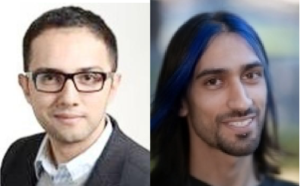
Thursday MIPS Roundtable: Meet our MIPS Instructors
MIPS Roundtables are every other Thursday from 1:30-2:30pm showcasing various topics and are open to all interested. Note we will take a break through late July and August.
1:30-2:00 PM | Dr. Ahmed El Kaffas, Ph.D.
Translational Ultrasound for Tissue Characterization and Stimulation
Instructor, Radiology
Stanford University
2:00-2:30 PM | Dr. Brett Fite, Ph.D.
Combining Focal and Immunotherapies
Instructor, Radiology
Stanford University
Please note Zoom information does change week to week.
7/9 Webinar URL: https://stanford.zoom.us/j/91909413178
Dial: +1 650 724 9799 or +1 833 302 1536
Webinar ID: 919 0941 3178
Password: 572746

Thursday MIPS Roundtable: Meet our MIPS Instructors
MIPS Roundtables are Thursdays from 1:30-2:30pm showcasing various topics and are open to all interested. Note this will be our last summer Roundtable and we will take a break through late July and August.
1:30-2:00 PM | Dr. Josquin Foiret, Ph.D.
High throughput ultrasound imaging for improved diagnosis
Instructor, Radiology
Stanford University
2:00-2:30 PM | Dr. Jinghang Xie, Ph.D.
TESLA probes for imaging T cell-mediated cytotoxic response to immunotherapy
Instructor, Radiology
Stanford University
Please note Zoom information does change week to week.
7/16 Webinar URL: https://stanford.zoom.us/j/94952044130
Dial: +1 650 724 9799 or +1 833 302 1536
Webinar ID: 949 5204 4130
Password: 963699
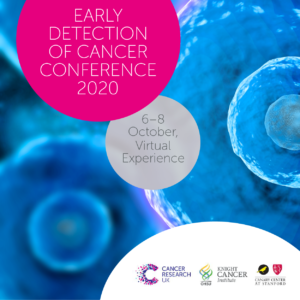
Cancer Research UK, OHSU Knight Cancer Institute and the Canary Center at Stanford, present the Early Detection of Cancer Conference series. The annual Conference brings together experts in early detection from multiple disciplines to share ground breaking research and progress in the field.
The Conference is part of a long-term commitment to invest in early detection research, to understand the biology behind early stage cancers, find new detection and screening methods, and enhance uptake and accuracy of screening.
The 2020 conference will take place October 6-8 virtually.
Cancer Research UK, OHSU Knight Cancer Institute and the Canary Center at Stanford, have been closely monitoring developments relating to the coronavirus (COVID-19) outbreak and reviewing guidance from government bodies. After careful consideration, we have made the decision to convert the Early Detection of Cancer Conference 2020 to a virtual conference, instead of the scheduled in-person conference on October 6-8 in London, UK.
For more information visit the website: http://earlydetectionresearch.com/
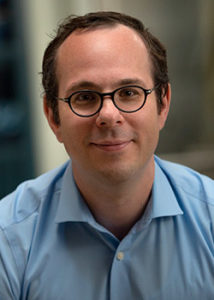
CEDSS: “The Origins and Detection of Lethal Prostate Cancer”
Paul Boutros, Ph.D., M.B.A.
Director, Cancer Data Sciences
UCLA
Please see zoom details below:
Meeting URL: https://stanford.zoom.us/s/93515779500
Dial: +1 650 724 9799 or +1 833 302 1536
Meeting ID: 935 1577 9500
Meeting Passcode: 767148
ABOUT
Boutros earned his B.Sc. degree from the University of Waterloo in Chemistry in 2004, and his Ph.D. degree from the University of Toronto, Canada, in Medical Biophysics in 2008. At Toronto, he also earned an executive M.B.A. from the Rothman School of Management. In 2008, Boutros started his independent research career at the Ontario Institute for Cancer Research first as a fellow (2008–2010) and then as principal investigator (2010–2018). He moved to California to join the UCLA faculty in 2018.
Hosted by: Utkan Demirci, Ph.D.
Sponsored by the Canary Center & the Department of Radiology
Stanford University – School of Medicine

About this Event
This two-day seminar series brings together the brightest minds in molecular imaging to discuss their latest research. Each talk will last 30 min with a full 15 min dedicated for Q&A, related both to their science and their career. So bring that question you’ve always wanted to ask!
Agenda (Note all times are in GMT)
Day 1 (9th November)
13:30 – Ferdia Gallagher (Cambridge University) ‘Clinical imaging of tumour metabolism’
14:15 – David Lewis (CRUK Beatson Institute) ‘Illuminating metabolic vulnerabilities in lung cancer’
15:00 – Federica Pisaneschi (MD Anderson Cancer Center) ‘Imaging ROS burst during myeloid cell activation with 4-[18F]fluoronaphthol’
15:45 – Break
16:00 – Adam Shuhendler (University of Ottawa) ‘Activity-based Sensing by CEST-MRI’
16:45 – Israt Alam (Stanford University) ‘A tale of two biomarkers: visualizing T cell activation with immunoPET’
Day 2 (10th November)
13:30 – André Neves (Cambridge University) ‘Molecular imaging of aberrant glycosylation in cancer’
14:15 – Gilbert Fruhwirth (King’s College London) ‘How non-invasive in vivo cell tracking supports the development of advanced immunotherapeutics’
15:00 – Sarah Bohndiek (Cambridge University) ‘Shedding light on the tumour vasculature’
15:45 – Break
16:00 – John Ronald (Robarts Research Institute) ‘Reporter genes and genome editing for MRI cell tracking: Maybe MRI doesn’t suck?’
16:45 – Michelle James (Stanford University) ‘Shedding light on the immune system to improve detection and treatment of brain diseases using PET’

CEDSS: Systematic identification of fluid-based biomarkers for ovarian and prostate cancer
Thomas Kislinger, Ph.D.
Professor & Chair
Department of Medical Biophysics
University of Toronto
Senior Scientist
Princess Margaret Cancer Centre
Zoom Webinar Details
Meeting URL: https://stanford.zoom.us/s/94878578384
Dial: +1 650 724 9799 or +1 833 302 1536
Webinar ID: 948 7857 8384
Passcode: 692692
Register Here
ABOUT
Thomas Kislinger received his MSc in Analytical Chemistry from the University of Munich, Germany (1998). He completed his PhD in 2001, investigating the role of Advanced Glycation Endproducts in diabetic vascular complications at the University of Erlangen, Germany and Columbia University, New York. Between 2002 and 2006 he completed a post-doctoral fellowship at the University of Toronto. In 2006 he joined the Princess Margaret Cancer Centre as an independent investigator. Dr. Kislinger holds positions as Senior Scientist at the Princess Margaret Cancer Centre and as Professor and Chair at the University of Toronto in the Department of Medical Biophysics. The Kislinger lab applies proteomics technologies to translational and basic cancer biology. This includes the development of novel proteomics methodologies, identification of liquid biopsy signatures and the molecular identification of novel cell surface markers.
Hosted by: Utkan Demirci, Ph.D.
Sponsored by: The Canary Center & the Department of Radiology
Stanford University – School of Medicine
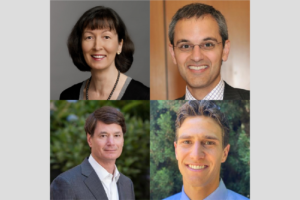
Intersection of Imaging and Therapeutics – MIPS Mini-Retreat
Hosted by: Dr. Heike Daldrup-Link, MD & Dr. Katherine Ferrara, PhD
Sponsored by: Department of Radiology, Molecular Imaging Program at Stanford
The MIPS Mini-retreat series brings together members of the MIPS and greater School of Medicine community to discuss current opportunities for research and collaborations. Each month we will discuss a different topic and we invite all those interested to attend. The mini-retreats will be roughly 1.5-2 hours in length with ample time for discussion throughout. We hope you can join us and spark new collaborations!
Zoom Webinar Information
Webinar URL: https://stanford.zoom.us/j/96227145646
Dial: US: +1 650 724 9799 or +1 833 302 1536 (Toll Free)
Webinar ID: 962 2714 5646
Passcode: 3039816
Agenda (all times are in PST)
8:00-8:05 AM – Opening Remarks – Katherine Ferrara, PhD
8:05-8:20 AM – Image-guided Therapy – Heike Daldrup-Link, MD
8:20-8:35 AM – Imaging Antibody Distribution – Eben Rosenthal, MD
8:35-8:50 AM – MRgFUS and Pancreatic Cancer – Pejman Ghanouni, MD, PhD
8:50-9:05 AM – RefleXion – Lucas Kas Vitzhum, MD
9:05-10:00 AM – Discussion – Moderated by: Katherine Ferrara, PhD
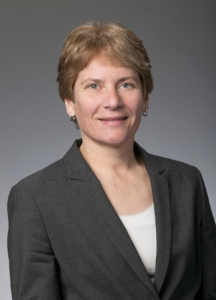
MIPS Seminar Series: Translational Opportunities in Glycoscience
Carolyn Bertozzi, PhD
Director, ChEM-H
Anne T. and Robert M. Bass Professor in the School of Humanities and Sciences
Professor, by courtesy, of Chemical and Systems Biology
Stanford University
Location: Zoom
Webinar URL: . https://stanford.zoom.us/j/94010708043
Dial: US: +1 650 724 9799 or +1 833 302 1536 (Toll Free)
Webinar ID: 940 1070 8043
Passcode: 659236
12:00pm – 12:45pm Seminar & Discussion
RSVP Here
ABSTRACT
Cell surface glycans constitute a rich biomolecular dataset that drives both normal and pathological processes. Their “readers” are glycan-binding receptors that can engage in cell-cell interactions and cell signaling. Our research focuses on mechanistic studies of glycan/receptor biology and applications of this knowledge to new therapeutic strategies. Our recent efforts center on pathogenic glycans in the tumor microenvironment and new therapeutic modalities based on the concept of targeted degradation.
ABOUT
Carolyn Bertozzi is the Baker Family Director of Stanford ChEM-H and the Anne T. and Robert M. Bass Professor of Humanities and Sciences in the Department of Chemistry at Stanford University. She is also an Investigator of the Howard Hughes Medical Institute. Her research focuses on profiling changes in cell surface glycosylation associated with cancer, inflammation and infection, and exploiting this information for development of diagnostic and therapeutic approaches, most recently in the area of immuno-oncology. She is an elected member of the National Academy of Medicine, the National Academy of Sciences, and the American Academy of Arts and Sciences. She also has been awarded the Lemelson-MIT Prize, a MacArthur Foundation Fellowship, the Chemistry for the Future Solvay Prize, among many others.
Hosted by: Katherine Ferrara, PhD
Sponsored by: Molecular Imaging Program at Stanford & the Department of Radiology